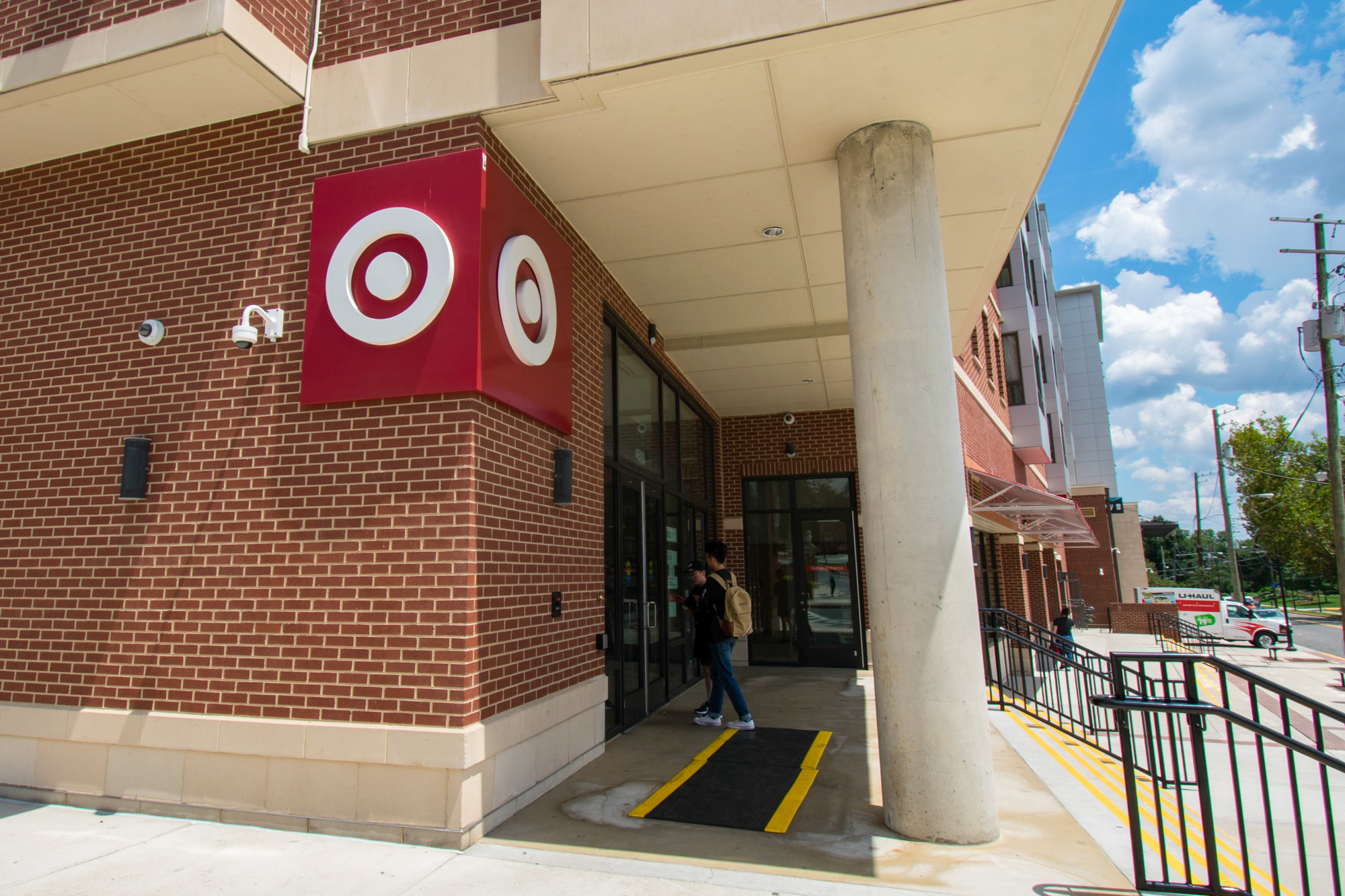Views expressed in opinion columns are the author’s own.
The College Park Target store is set to close May 13, leaving a significant void in both the building it occupies and in the lives of the students at this university.
We could soon say goodbye to the days of finding a new pair of headphones, Maryland apparel and fresh vegetables all in one place. Goodbye to the blissful feeling of finding everything we need for the week in adjacent aisles; goodbye to a staple of convenience in College Park.
The closure of the location under the Landmark apartment building was announced along with three other closures of the smaller, less conventional stores found mostly in urban areas. While this might present as a company-wide downsizing, Target actually plans to open 20 new locations and renovate 70 more this year, according to its yearly SEC filing.
The company cited a decline in overall foot traffic as its reason for shuttering smaller, urban stores, such as the one in College Park. However, this reasoning confuses me. With the university’s population continuing to rise and new nearby apartment buildings, such as The Standard, The Hub and Union on Knox nearing completion, there will be no shortage of students in need of an all-purpose store within walking distance of their residences and classes. Even away from the university, College Park’s population has followed a similar trend, currently increasing at a rate of 1.22 percent annually. Clearly, the need for a Target is only growing, making the cited reason for the closure all the more baffling.
Target closing its College Park location is a poor financial move for the company in the long run, and the decision should be reversed. If “the quest to bring joy” is truly at the center of the company’s mission, it will prioritize the wellbeing of a loyal and growing customer base over expansion of its larger stores in other locations.
Target’s “quest” appears to be growth at all costs, not just in the number of stores, but in its overall size as well. The brand’s new strategy of expanding its footprint works for expanding its shipping fulfillment capabilities, but alienates customers in urban areas who lack long-distance transportation, including many students at this university.
While the College Park location is one of Target’s smaller stores, its inventory is efficiently tailored to its customer base by providing an array of basic necessities in one convenient location. In a sense, this is an issue of inventory quality versus quantity and the company has decided to favor quantity moving forward.
This shift neglects the fact that the American population as a whole continues to consolidate in urban areas, where walkability and bike friendliness outweigh car dependency. Convenience is key in an urbanite’s life, and having to Uber to the nearest department store to shop for a few basic necessities is not only inconvenient, but often prohibitive. Urban dwellers and time-crunched students require a store within reach.
Larger Target stores, according to the company, are being renovated to fulfill more e-commerce orders. This fails to fill the convenience void left by the closures by requiring prospective customers to wait several days for their purchases to arrive, while also adding shipping costs to their purchases and perpetuating environmentally irresponsible shipping practices.
Ultimately, this move is convenient for the company, but not for consumers they claim to serve.
The negative environmental and societal impacts of car-dependent infrastructure are becoming apparent as time progresses, with the effects of mass automobile usage on the climate being impossible to ignore. One remedy to the environmentally destructive suburban sprawl of the last century is the relocation of retail stores to smaller, more space-efficient locations within mixed-use buildings. Landmark’s use of the space is a model of mixed-use development, but Target has left it high and dry.
Target’s current priorities perpetuate car dependency, which especially alienates students and young adults who lead walkable and transit-oriented lifestyles. Instead of continuing to embrace us as an expanding and thriving customer base, Target has shown that their priorities lie elsewhere.
If the closure moves forward, the brand will be depriving itself of a market that it has effectively dominated, with students in the area having little to no choice of finding a department store within walking distance. Target’s natural monopoly over the area will be abandoned if it goes through with this unpopular and economically short-sighted closure. Students need a place to shop, and whether it be Target or another vendor, this need will be filled.
If Target goes through with its decision to neglect our expanding market, another retailer will surely take advantage of the local population’s needs and fill the void. And while students continue to embrace convenience in our increasingly-hectic lives, therapeutically roaming the aisles of the well-stocked, space-efficient and comforting store that takes its place, we will continue to do what is needed to maintain our lives, leaving Target in the dust.
Joey Barke is a sophomore journalism and government and politics major. He can be reached at joey@terpmail.umd.edu



